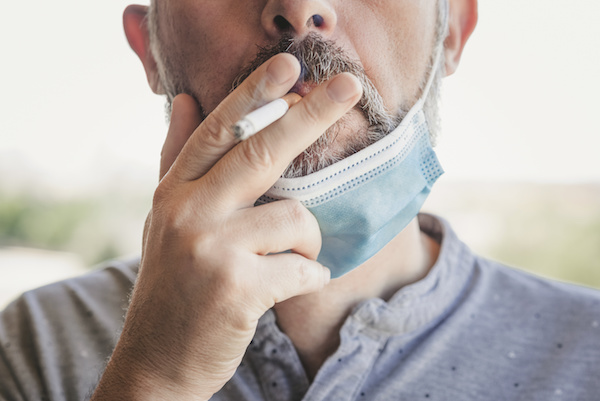
We’ve been hearing it in the headlines: “Smokers are at a greater risk of COVID-19 complications”, but have you been keeping up-to-date with the research that’s backing this theory? Scientists have come a long way since first seeing the virus in late November of 2019 and advancements, like the research in the study below, may lead to new therapeutic strategies that could help to reduce smokers’ chances of developing severe cases of COVID-19.
The study
According to researchers at the University of California Los Angeles (UCLA), those who smoke combustible cigarettes are at a greater risk of contracting complications from COVID-19. While there have been several recent studies conducted that have indicated similar results, this particular experiment used lab-grown lung tissue to help them pinpoint how smoking traditional cigarettes are facilitating a more severe lung infection by the novel coronavirus.
What were the results?
As a result, the research published in the journal Cell Stem Cell concluded that COVID-19 patients who smoke combustible cigarettes were more likely to develop severe symptoms, or die, as a result of the virus, when compared to non-smokers.
Scientists were able to recreate what happens when the airways of a current smoker are infected with the novel coronavirus (SARS-CoV-2). They utilized a platform known as an air-liquid interface culture, which is grown from unspecialized cells called human airway stem cells, and closely replicated how these behave and function within humans. The airways, which carry air breathed in from your nose and mouth to your lungs are your body’s first line of defense against airborne pathogens, like the COVID-19 virus, other viruses, bacteria, and smoke.
“Our model replicated the upper part of the airways, which is the first place the virus hits” explained Professor Brigitte Gomperts, a co-author of the UCLA research study.
Stem cells were taken from the lungs of healthy, non-smoking tissue donors, allowing researchers to replicate the effects of smoking by exposing the airway cultures to cigarette smoke for three minutes per day over four days.
While the above model has been used in the past to mimic the changes you see in smoking, for the purposes of this experience, the cigarette smoked cultures were then infected with live SARS-CoV-2 and further compared.
Using the model explained above, scientists reported between two and three times more infected cells in tissue exposed to both combustible cigarette smoke and the virus, which they believe was caused by the immune system blocking the messenger proteins, also referred to as interferons.
How can a JUUL starter kit help you to quit today?
If these studies give you that additional motivation to improve your health and quit combustibles, you want to set yourself up for success before you even start your quit-smoking journey. It’s best to gain access to a product lineup with the ability to deliver an experience that simulates your past smoking lifestyle.
JUUL pods contain 5% nicotine in two delicious flavors, Virginia tobacco and menthol. Not only does the high concentration levels in the pods help to curb your cravings, but they also offer a comparable dosage to stronger combustibles, allowing you to wave goodbye to the damaging effects of tobacco products without experiencing the uncomfortable side effects brought on by nicotine withdrawal.
Better your chances of fighting off COVID-19 by quitting smoking today with a JUUL starter kit!
Have you been more motivated to quit smoking since the spread of the novel coronavirus? Tell us your story in the comments section below.
The post Smoking reduces natural defenses against COVID-19, study appeared first on Blog Vape-Ecigs.




